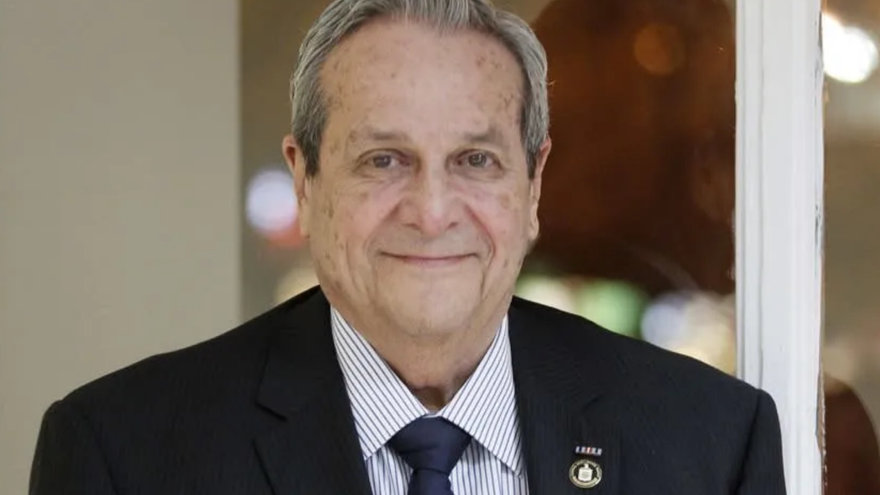
![]() EFE (via 14ymedio), Jorge I. Pérez, Miami, 7 July 2022 –Cuban-American Félix Rodríguez, the CIA agent who led the operation in Bolivia to capture Ernesto Che Guevara that culminated in his execution in 1967, told Efe on Wednesday that “the only thing that could be buried in Cuba” are the hands of the guerrilla.
EFE (via 14ymedio), Jorge I. Pérez, Miami, 7 July 2022 –Cuban-American Félix Rodríguez, the CIA agent who led the operation in Bolivia to capture Ernesto Che Guevara that culminated in his execution in 1967, told Efe on Wednesday that “the only thing that could be buried in Cuba” are the hands of the guerrilla.
“The body was never where they say they found it,” he stresses in a telephone conversation. According to Rodríguez emphatically, the Argentine guerrilla “was not buried at the side of the runway with seven other bodies as Fidel (Castro) said; Che was buried at the head of the runway with two more corpses, there were only three.”
A few days before the 25th anniversary of the discovery of Che’s body at the Vallegrande airport (Bolivia), the 81-year-old former CIA agent, retired in Miami, denies the official version of what happened on 28 June 1997.
According to the official Cuban version, the body of the revolutionary leader was found that day in a mass grave at the Vallegrande airport and, after being identified in a hospital in Bolivia, his remains were sent to Cuba, where a mausoleum was erected in his honor in Santa Clara.
According to the media outlet Cubavisión Internacional, the remains of the Argentine guerrilla were found on an abandoned runway in Vallegrande. There, says the media, a group of Cuban experts found the grave where seven guerrilla men were buried, including their leader Ernesto Che Guevara.
“Obviously, if he (Fidel Castro) buried his hands, then there is a part of Che in the Santa Clara monument, because the hands were taken there by the (then) Minister of the Interior (Antonio) Arguedas,” along with a copy of the guerrilla’s diary in Bolivia, says Rodríguez.
According to the former CIA agent, “at dawn a Bolivian doctor went with my partner, (Gustavo) Villoldo, and then they cut off his hands, put them in formalin and put them in a volqueta (dump truck), as they call the pickups, they took Che to the end of the runway where there was a bulldozer that was widening the runway for larger planes to land.
“And there they buried him, at the end of the runway next to two corpses and Fidel says they found him to one side with seven more. That was not Che Guevara,” he says.
On how it became known that Che was in Bolivia, Rodríguez, whose mission was to save his life, although he now says that his execution was “the best thing that could happen,” recalls that it had to do with the French philosopher and writer Régis Debray.
“It was confirmed when they took (Argentine intellectual Ciro) Busto and Régis Debray prisoner; they went to visit Che and when they were taken prisoner they confirmed that the person was Che Guevara. If it wasn’t for them, it wouldn’t have been known that Che was in Bolivia,” he says.
On October 9, 1967, Rodríguez landed in Bolivia to capture Che and later saw him “tied hand and foot.”
“My mission was to save his life at the request of the US government. It was very important to keep him alive, killing him was a decision of the Bolivian president, General René Barrientos,” he said. It was the Bolivian sergeant Mario Terán who executed Guevara in La Higuera that same day.
According to Rodríguez, the burial of the body “was not a military secret, they simply did not tell anyone.”
“They took a driver that day and buried him at the end of the runway, and gave out the news that he had been cremated and that the ashes had been thrown from a helicopter into the air, which was not true,” he says.
And he adds: “That was the official news that was given to the Bolivian people: that (Che) was cremated and his ashes scattered over the Bolivian jungle, but the truth is that he was buried at the head of the runway, you can put it to bed,” he asserted.
____________
COLLABORATE WITH OUR WORK: The 14ymedio team is committed to practicing serious journalism that reflects Cuba’s reality in all its depth. Thank you for joining us on this long journey. We invite you to continue supporting us by becoming a member of 14ymedio now. Together we can continue transforming journalism in Cuba.
